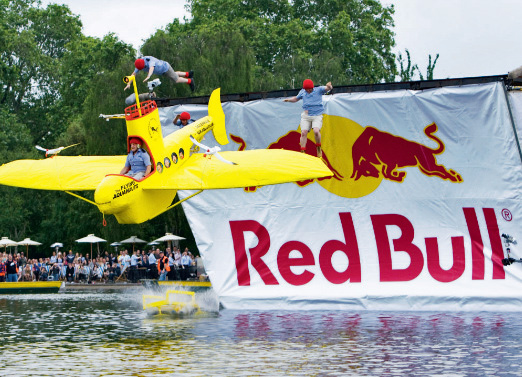A marketing simulator
Question: how do you build a stronger marketing team for this year than the one that helped you battle through the last? Caveat: there is no budget for new talent.
The answer is obvious enough – better training for the people you have. For perhaps a fifth of the cost of a single star hire, a well-conducted training programme can raise the skills of an entire department.
In other disciplines, where continuous professional development is the accepted route to success, such a proposal would be nothing out of the ordinary. In marketing departments, systematic training remains more the exception than the norm. More typical is the occasional pep talk, perhaps featuring an outside speaker, with teams expected to “learn on the job”.
If marketing were aviation, this would be the equivalent of the flight crew practising their newly acquired theoretical skills on a packed transatlantic flight. Instead, and very sensibly, they start in the simulator.
For a marketing leader pondering cross-department training for the first time, the variables can be daunting. How do you make it relevant for all levels? What about different learning styles? Is it better to keep it in-house, or send everyone on an external business-school programme?
With both budget and those questions in mind, here is a recommendation to consider – the case method. First developed by Harvard, and practised at the leading business schools, this is not the simplistic, illustrative-case storytelling of the imagination. It is far more interactive, and therefore far more demanding, than that.
In its purest form, students read a data-rich business case – complete with asymmetrical trade-offs, and pivotal moments – and arrive at the session ready to discuss it. The skill of the trainer comes into play here, as he or she probes the group on aspects of the case, repeatedly returning to points when the options were anything but obvious.
Although each case will replicate the full fluidity of the marketing environment, it will also have a “centre of gravity” – not necessarily signposted at the outset. So its pivotal feature might be innovation, or segmentation, for example.
Students will be expected to find this, to probe it in teams, explore the ramifications of alternative paths at decision points, and identify the right tools and frameworks that they would reach for in similar situations.
The case method doesn’t work without theoretical learning first, but it brings theory into sharp relief. It encourages teams to train their eyes on the crucial measurements at each stage, and to use tools and frameworks for what they are, rather than just sort of admiring them in an abstract way. It is the closest thing in the diffuse discipline of marketing to a simulator.
The beauty of the case method is that it can easily be undertaken in-house, and offers challenges for all levels – since it is about exploring, not merely knowing.
It is also suitable for all so-called “learning styles”. This hotly disputed theory postulates that people learn either verbally, visually, or experientially. Whatever the merits of that debate, the case method necessarily involves all three.
Aim for six to eight sessions, each focusing on one of the big marketing sub-disciplines. By the end of the year you will have a different problem to ponder: while you won’t feel the need to hire new talent, you will have to watch out for competitors taking a keen interest in yours.
There are thousands of these available. Despite that, it’s not always easy to find one that illuminates a key point and allows the relevant use of a particular tool or framework. Here are three that fit the bill:

Red Bull: award-winning case
Red Bull: the anti-brand brand. This 2010 award-winner, published by London Business School, tells the story of the Red Bull brand from launch in 1984 through to 2004, when it led its category but faced tough competition and hard decisions. A lengthy, data-rich case, great for exploring how to build and manage brand equity across multiple touchpoints.
Apple Inc in 2010. Last year’s ‘best case overall’ winner. Published by Harvard, it explores the choices facing Apple Inc just after the launch of the iPad. Despite the initial success of the iPod and iPhone, sales were slowing. Good for exploring positioning and strategic planning.
Parfums Cacharel de L’Oreal 1997-2002: decoding and revitalising a classic brand. Published by INSEAD, this is a favourite of Simona Botti, who teaches the brand management elective at London Business School. A case that demands students explore how to use a brand audit, and reconcile historical brand identity with consumer trends.
